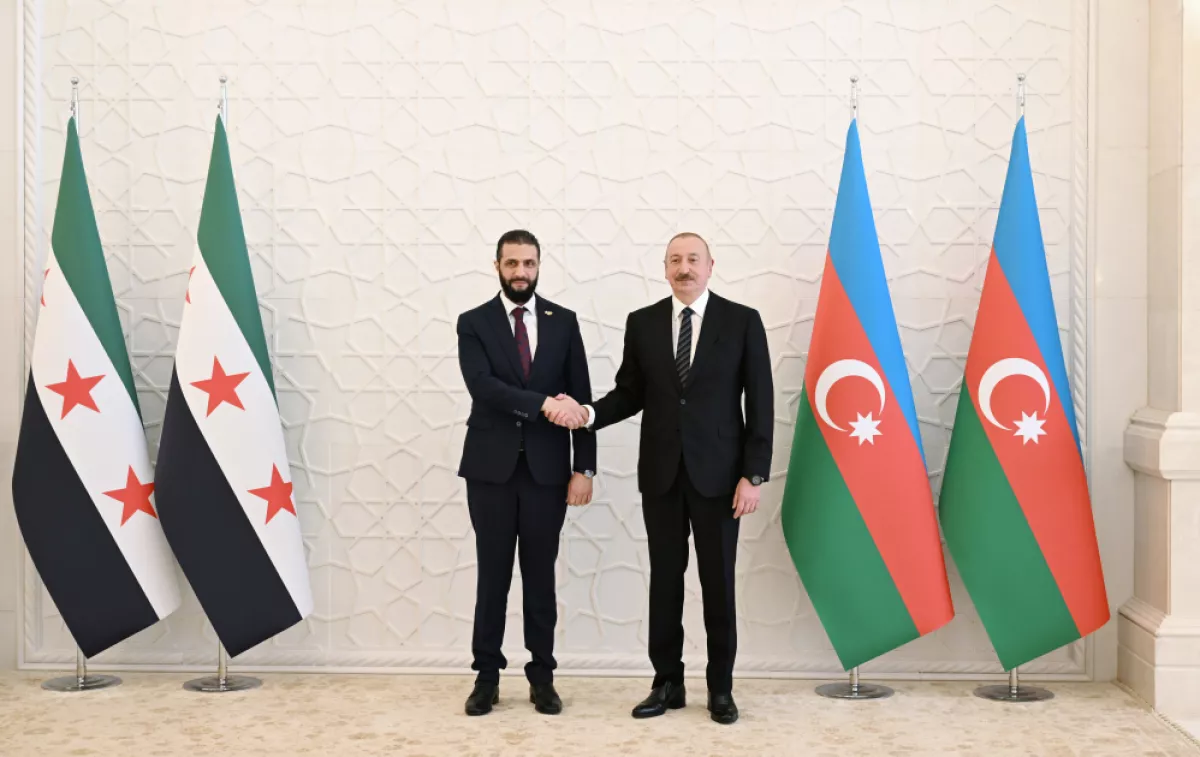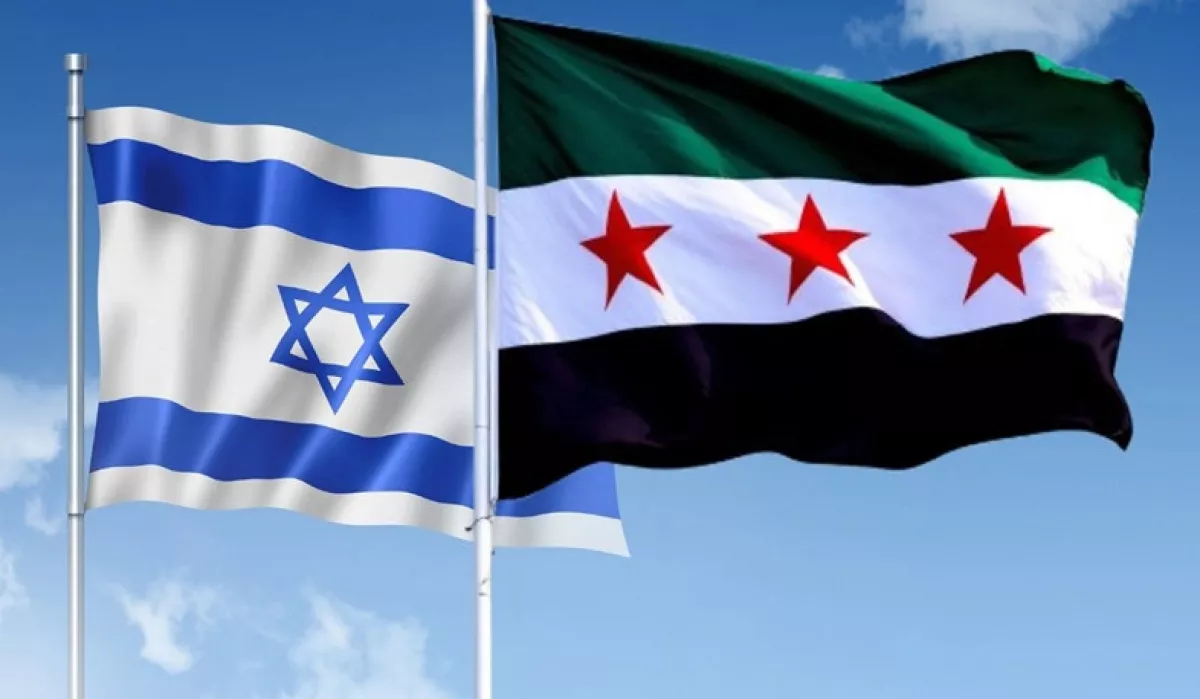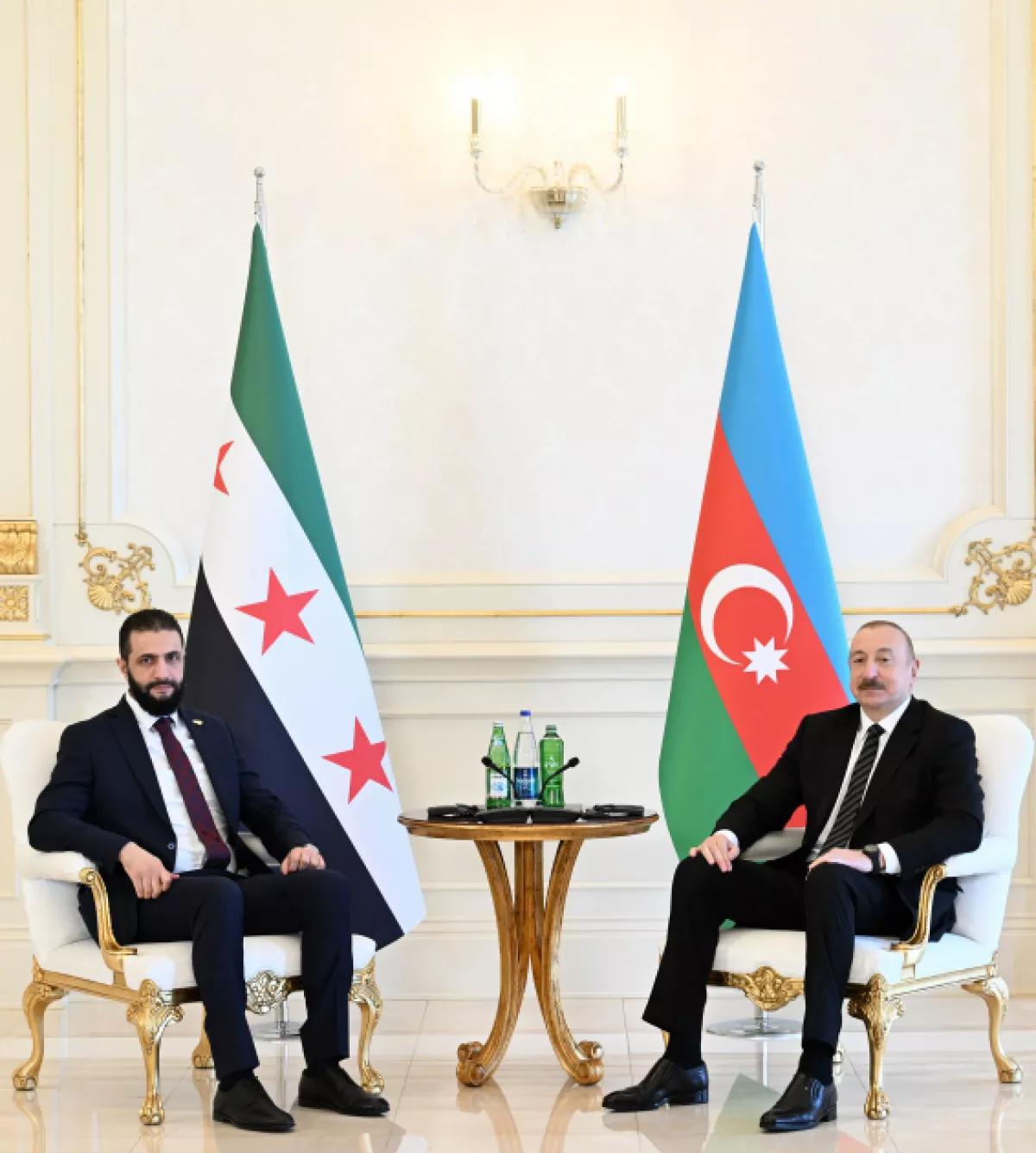What lies behind the Syrian president’s visit to Baku? Caliber.Az analysis
The arrival of the transitional President of the Syrian Arab Republic, Ahmed al-Sharaa, to Azerbaijan marks a significant milestone in the development of bilateral relations and reflects the broader context of Baku’s evolving foreign policy strategy. The visit, which commenced on July 12, is the rational next step to the diplomatic contacts that had been established following the meeting of the two presidents at the Antalya Diplomacy Forum. It also underscores Baku’s growing ambition to play a more active role in the Middle East — a region traditionally marked by the intense competition of interests among global and regional players.

The change of leadership in Syria has given way to new opportunities for the reshaping of political ties, and Azerbaijan was quick to express its support for the Arab Republic’s territorial integrity and sovereignty. This gesture was perceived in Damascus as an act of solidarity from a country that has itself endured a prolonged conflict and successfully restored its territorial integrity thanks to its own efforts. Joint statements by Baku and Ankara on their readiness to assist in Syria’s post-conflict reconstruction align with a broader strategy of regional cooperation — one in which Azerbaijan is emerging as an active and engaged player.
The directive given by President Ilham Aliyev, which saw a delegation led by Deputy Prime Minister Samir Sharifov and representatives of Azerbaijan's Ministry of Foreign Affairs travel to Syria for the exploration of potential areas for support, marked the starting point for the practical development of specific initiatives. This visit served as a reflection for not only the humanitarian and infrastructure interests, but also of Azerbaijan’s political will to engage as a country with firsthand experience in post-conflict recovery — experience that is increasingly relevant in the Middle Eastern context.
The case of Karabakh, where Baku is implementing large-scale projects regarding demining, reconstruction, and the return of displaced citizens, serves as a compelling example for Syria — a country whose territory remains deeply scarred by widespread destruction.
Azerbaijan’s growing engagement in the Middle East is far from coincidental. While Baku’s foreign policy was previously focused primarily on Europe and Central Asia, the restoration of control over its territories marked a turning point, ushering in a more ambitious strategy aimed at strengthening partnerships in regions where the interests of major powers intersect.
Thanks to consistent diplomacy and the personal authority of President Ilham Aliyev, Azerbaijan is increasingly viewed as a reliable partner in the Middle East — one capable of serving as a mediator in complex regional dynamics.

Azerbaijan’s role in facilitating meetings and consultations between Syria and Israel, as well as its participation in establishing a “hotline” to reduce tensions between Türkiye and Israel over the Syrian issue, highlights Baku’s flourishing mastery of quiet diplomacy. This area of foreign policy requires a delicate balance of interests and the ability to build trust among players often positioned on opposing sides. Azerbaijani diplomacy, steering clear of loud declarations and political posturing, has proven effective through its pragmatic and flexible approach.
Equally promising is the energy dimension of this cooperation. Amid rising global demand for Azerbaijani gas, Baku is actively exploring ways for the diversification of its export routes. While Europe remains a key market, discussions are now underway regarding the potential expansion of gas exports to the Middle East. Although the prospect of delivering Azerbaijani gas to Syria is still in the early stages, the fact that it has entered the negotiation agenda reflects the strategic foresight of both sides and Damascus’ interest in integrating itself into emerging energy corridors.

Bilateral relations between Azerbaijan and Syria have not always followed a straightforward course. In the past, the political stance of the Bashar al-Assad regime did little to deepen bilateral cooperation. However, the current geopolitical landscape has significantly altered the context.
The visit of Ahmed Ash-Sharaa, the President of the Syrian Arab Republic for the transitional period, underscores that Azerbaijan is no longer confined to the role of a local actor. Instead, it is becoming increasingly engaged in shaping the architecture of Middle Eastern security and economic cooperation. In the foreseeable future, such initiatives are likely to become part of a broader trend in which Baku plays a more prominent role in processes that are redefining the regional order. While challenges remain, ranging from geopolitical rivalries to Syria’s complex domestic situation, these very efforts are positioning Azerbaijan as a more influential and indispensable player in regional politics.








